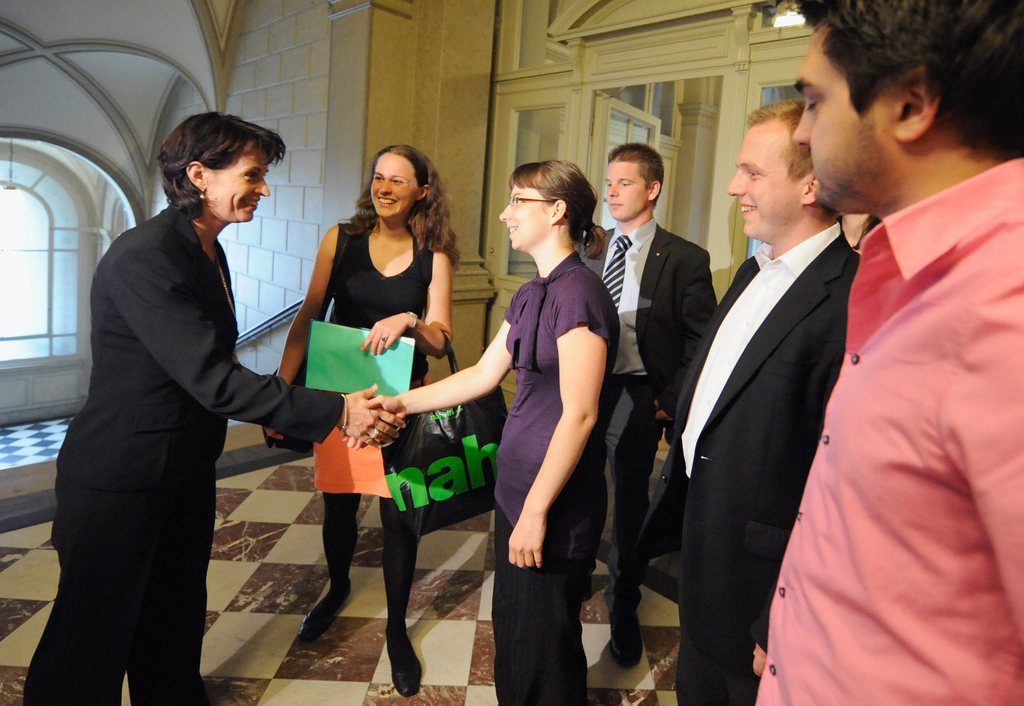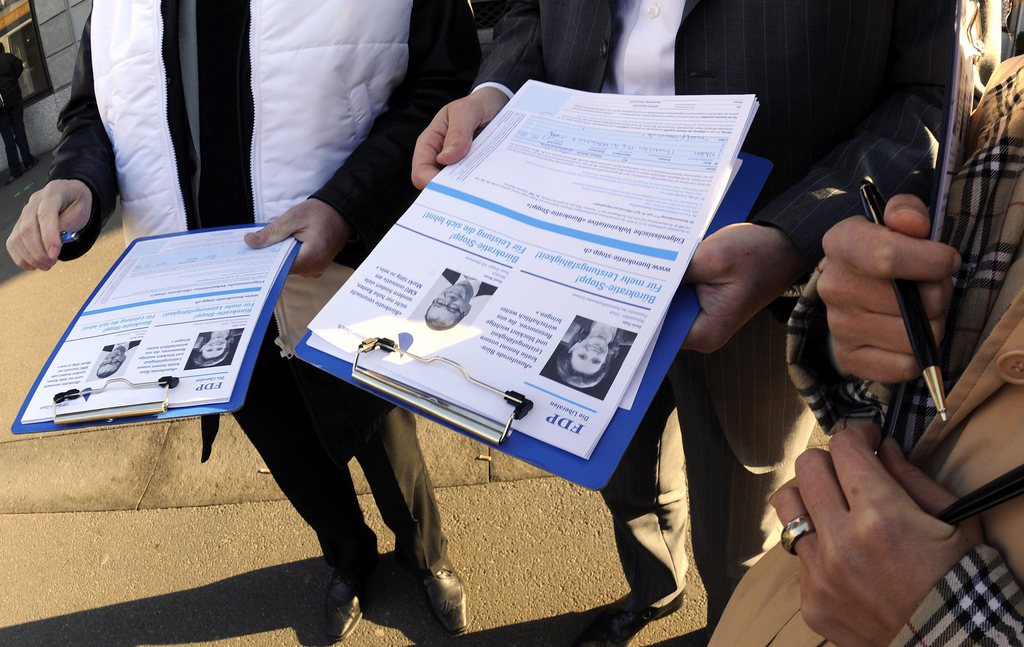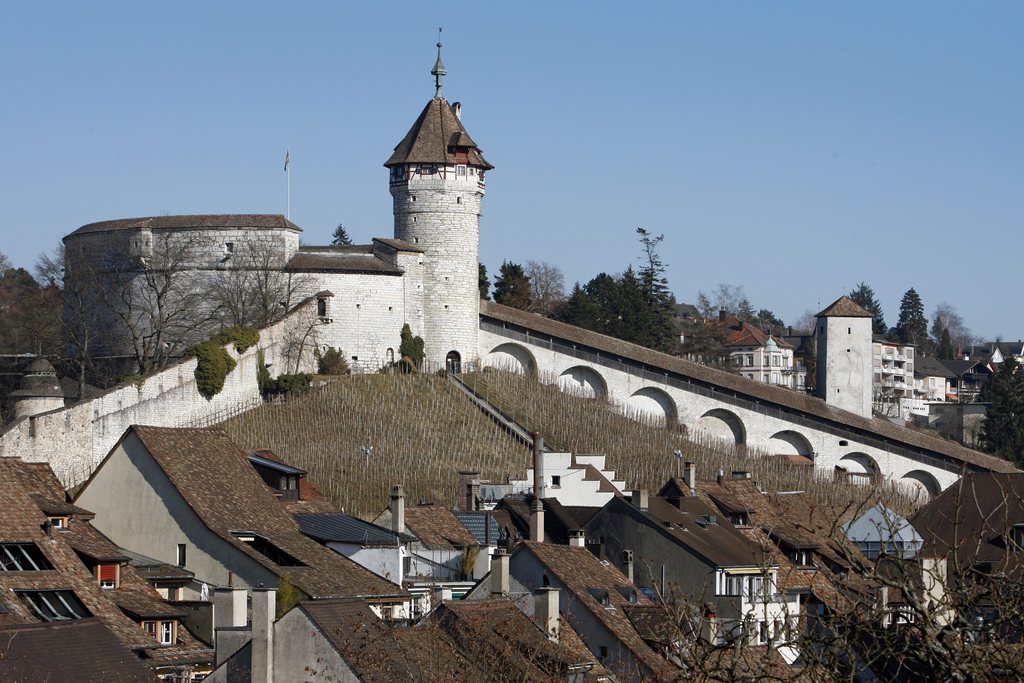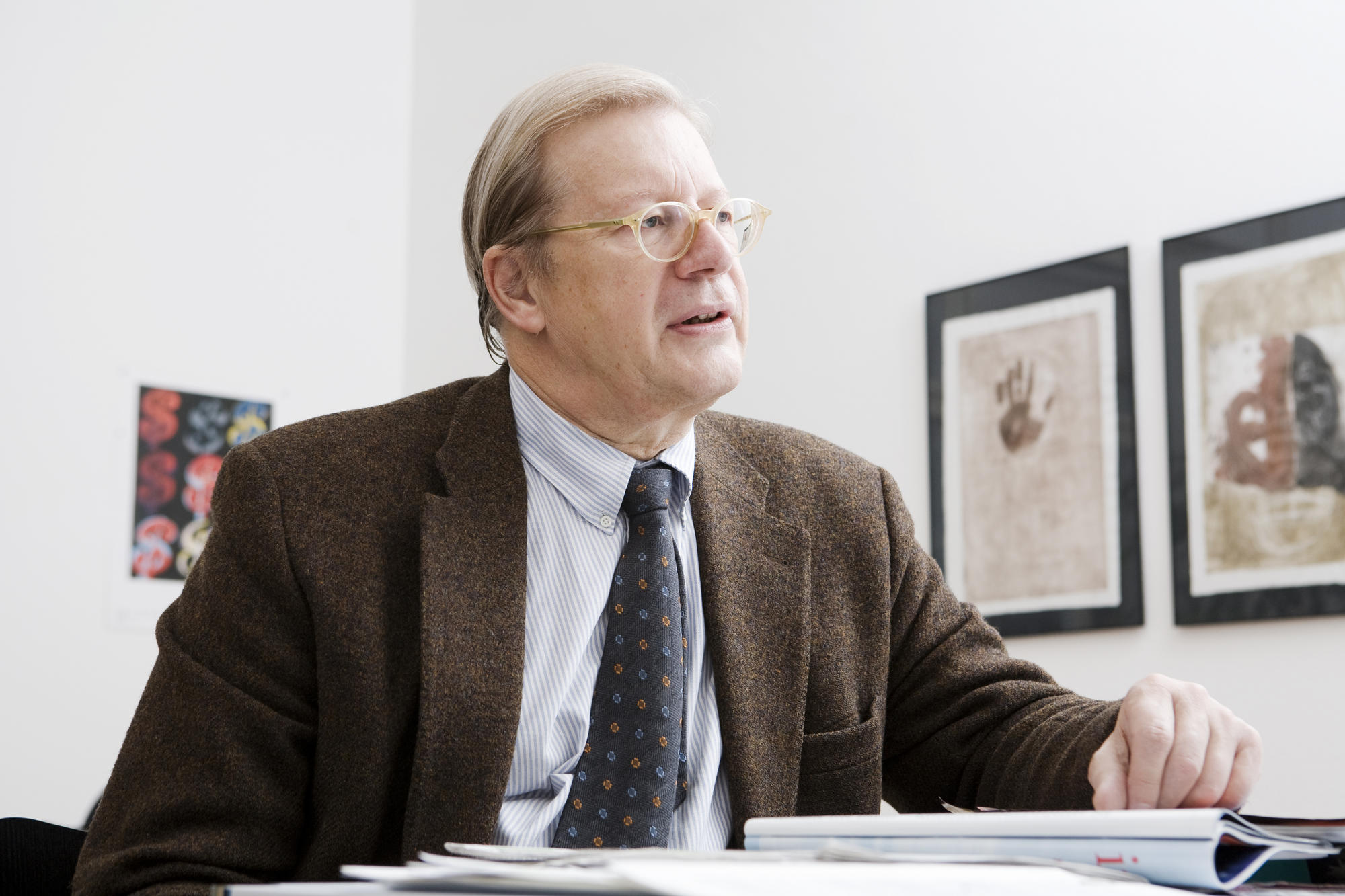Youth wings carry politicians to greater heights

The youth sections of Swiss political parties are increasingly making their views heard on big issues from excessive executive pay to pension reforms. Active young members bring a breath of fresh air but do they actually carry any political weight?
Lukas Reimann and Cédric Wermuth could have simply made an annual contribution to their political party. But they wanted much more – to participate and to be able to make their views known right away.
“Something was missing,” said 32-year-old Reimann.
The rightwing Swiss People’s Party parliamentarian started attending party meetings at the age of 15, surrounded by people who were fifty years his senior.
Reimann then “slipped into politics” after forming the Young People’s Party in canton St Gallen with a couple of school friends.
“Automatically you are part of the cantonal committee and involved in everything, doing lots of political work,” he explained.
As president of the party’s St Gallen youth section from 2000-2008, he became the youngest ever parliamentarian when he was elected in 2007 to the House of Representatives.
Wermuth, 28, had a similar route into politics.
“I never liked the fact that other people decided how the country in which I live should be run,” he declared.
Wermuth chanced upon a Young Socialists flyer back in 1999 when he was looking through voting material his parents had received in the post.
“At that time I didn’t really know that youth party wings existed,” he said. Wermuth was president of the Young Socialists from 2008-2011, the year he was elected to the House of Representatives.
Important role
Compared with other countries, the youth wings of Swiss political parties tend to play a much more important role. In recent years they have launched a series of initiatives and referendums that have led to national votes.
The Young Radicals launched a referendum on book pricing that was successful in a national ballot in March 2012 when voters turned down the re-introduction of an agreement on fixed book prices.
The Young Socialists’ campaign to limit executives’ high salaries also gained huge media coverage, but was eventually rejected by voters in a national vote in November 2013. The youth sections of the centre-right parties are currently pushing for pension reforms.
“We don’t have a system of government that alternates,” said political scientist Michael Hermann, explaining the important role of youth wings. “In a traditional system where there is a government by the majority and an opposition, political parties are very involved in who is the head of the government or vice-chancellor, as we see in Germany.”
But in Switzerland the parties are a lot less hierarchical and offer a great deal of freedom. The youth wings have the advantage of “not being as integrated or as polished as the established party groups. This means that they can generate discussions and launch debates,” added the political scientist.
Swiss direct democracy also means small groups like youth party sections can make the most of traditional political instruments and launch projects that may either go against the ideas of their party or are independent.
But there are downsides, said Hermann.
“A youth wing can also become a handicap. It can become difficult to control and take on a life of its own, although it may appear to work well from the media’s perspective.”
Philipp Müller, president of the centre-right Radical Party (PLR), believes youth sections play a strong role in Swiss politics.
“They can tap into an electorate that we, PLR Switzerland, cannot or can only reach with difficulty,” he declared.
“It’s always good that the Young Radicals are there to show us the way.”
Enter the 21st century
In the 1990’s youth sections were still relatively insignificant. The period just after the break-up of the former Soviet Union and fall of the Berlin Wall was not one for big political debates, said Hermann.
“Opposing ideological views of the world or society seemed out of place,” he added.
This kind of environment just made youth wing appear even less attractive.
“In the 2000’s socialism had long collapsed, but the economic and financial crisis led a younger generation to relaunch the debates,” said Hermann.
Youth wings therefore “reflect a certain Zeitgeist”, he added.
More freedom
Both Wermuth and Reimann say they have benefited immensely from the sense of freedom within their youth wings.
“We definitely have a political vision that is freer, less institutional, fresher but also more radical, as we are not so restricted by practical constraints,” said Wermuth.
Reimann agreed that youthful energy and ambition permeated his youth party section.
“When you are young you still have your whole future in front of you and you commit passionately for your country. You don’t do it to try to get a particular political mandate or to make money,” he said.
Both men have made a successful transition from their respective youth wings to the national political stage and they are convinced the youth sections helped kickstart their careers.
At the age of 21 and president of the youth section of the St Gallen People’s Party, Reimann was elected to the cantonal parliament.
“I was known thanks to my activities with the Young People’s Party. It really helped me,” he said.
Wermuth denies joining the Young Socialists to help his career: “But in my case it was definitely a stepping stone. Thanks to the youth wing I was able to gain access to the main party and the general public then took me seriously.”
Talent incubator
But this transition does not always work for all young politicians, said Hermann: “You see many who were active in the youth sections and then disappear.” He added that those who failed generally lacked other skills.
One thing that they all seem to agree on is that one of the main roles of a youth wing is to generate ideas for the “big” party.
Müller said around 30% of the activities of the Young Radicals involves being an “incubator for new ideas and points of view”. The remainder is acting as a “hotbed where the future careers of young aspiring politicians are built.”
“They represent an excellent melting pot for the sustainable development of the party as a whole,” he added.
Youth wings
Young People’s Party : 6,000 members (14-35 years old)
Young Socialists: 3,300 (age limit 35).
Young Radicals : 3,000 (age limit 35).
Young Democrats : 2,000 (age limit 35).
Young Greens : 1,515 (no age limit)
(Translated by Simon Bradley)

In compliance with the JTI standards
More: SWI swissinfo.ch certified by the Journalism Trust Initiative




You can find an overview of ongoing debates with our journalists here. Please join us!
If you want to start a conversation about a topic raised in this article or want to report factual errors, email us at english@swissinfo.ch.